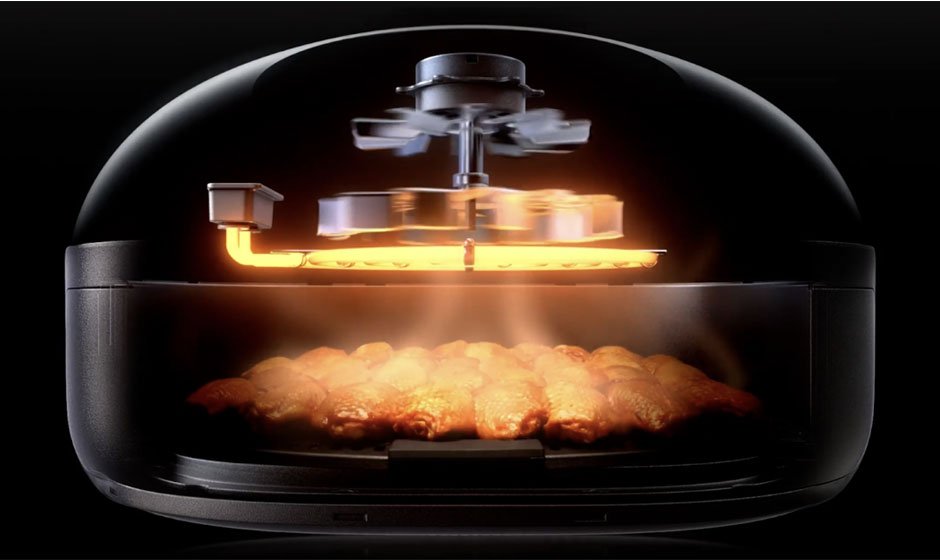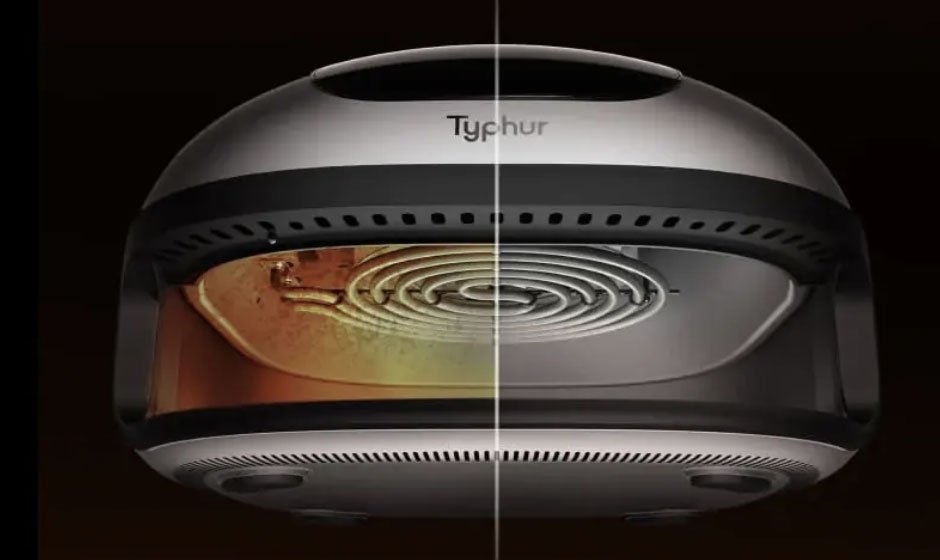Ah, the air fryer: a modern kitchen marvel that promises to deliver the crispy, crunchy goodness of fried food without all the guilt. But as you stand there, admiring those golden-brown chicken wings or that perfectly crisped broccoli, you might wonder, “Is this too good to be true? Are air fryers healthy?” Well, curious foodies, you’re in the right place! Let’s cut through the grease and get down to the nitty-gritty of whether air fryers are truly a healthier option or just hot air.
How Air Fryers Work?
First things first, let’s talk about how air fryers work.
At the heart of an air fryer is a powerful fan and a heating mechanism located at the top of the unit. When turned on, the air fryer rapidly circulates hot air around the food placed in a basket inside the appliance. This high-speed air circulation, often referred to as Rapid Air Technology, ensures even cooking and achieves that desired crispy texture on the outside of the food.

Air fryers are equipped with temperature controls that allow users to precisely set the cooking temperature, typically ranging from 175°F to 400°F (or higher in some models). This precise temperature control is key to cooking different types of food perfectly, from crispy French fries and chicken wings to more delicate items like vegetables and fish.
Unlike traditional frying methods that require food to be submerged in large amounts of oil, air fryers only need a light coating of oil on the food’s surface to achieve a similar taste and texture. This significant reduction in oil not only makes dishes healthier by cutting down on fat and calories but also simplifies cleanup and reduces waste.
Best Air Fryer for Health Cooking
The Typhur Dome Air Fryer stands out as the premier choice for health-conscious cooking. This air fryer’s unique airflow and circulation system, inspired by professional pizza ovens, ensures that food cooks evenly and quickly (Can air fryer chicken wings up to 32 within 14 mins), reducing the need for excessive oil without compromising on taste or texture.
By employing a system that circulates hot air with precision, it crisps food to perfection with minimal or no added fats, offering a healthier alternative to traditional frying methods. This approach significantly lowers calorie intake and reduces the consumption of unhealthy fats, aligning with the dietary preferences of health-conscious individuals.

Moreover, the Typhur Dome doesn’t sacrifice convenience for health. Its user-friendly interface, including a smart screen with chef-guided recipes, makes healthy cooking accessible to everyone, regardless of their culinary experience. Whether you’re preparing vegetables, meats, or even baked goods, the Typhur Dome delivers consistent results, ensuring that every dish is not just nutritious but also delicious.
The air fryer’s self-cleaning feature further underscores its health and safety advantages. Maintaining cleanliness and hygiene effortlessly, minimizes the risks associated with accumulated grease and food particles, ensuring a safer cooking environment.

Pros of Air Frying
- Reduced Fat Content: The standout benefit of air frying is its ability to cook food with significantly less oil. This means you can enjoy your favorite fried foods with a fraction of the fat and calories, which is great news for your waistline and heart health.
- Lower Acrylamide Formation: Deep frying can lead to the formation of acrylamide, a compound associated with an increased risk of cancer. Air frying has been shown to produce lower levels of acrylamide, making it a safer cooking method.
- Versatility: Air fryers aren’t just for frying; they can bake, grill, and roast, offering a healthier way to prepare a variety of dishes.
Cons of Air Frying
- Not All Recipes Are Healthier: Just because you’re using an air fryer doesn’t automatically make every dish healthy. Foods coated in sugary sauces or breading can still be high in calories and carbs.
- Overcooking Risks: There’s a fine line between crispy and charred. Overcooking food in an air fryer can lead to the formation of harmful compounds like acrylamide, albeit in lower amounts than deep frying.
- Portion Control Still Matters: It’s easy to overeat when your food comes out so deliciously crispy. Remember, even when air frying, portion control is key to maintaining a healthy diet.
So, Are Air Fryers Healthy?
The verdict is in air fryers can be a healthier alternative to traditional frying methods, provided they’re used correctly. By significantly reducing the amount of oil in cooking, air fryers help cut down on fat and calories without sacrificing taste. Plus, they offer a safer cooking method by minimizing harmful compound formation. However, like any cooking method, the health benefits depend on what you’re cooking and how you’re cooking it.
Making the Most of Your Air Fryer for a Healthier Diet
To truly reap the health benefits of your air fryer, consider the following tips:
- Choose healthier ingredients: Opt for whole foods like vegetables, lean meats, and fish.
- Use minimal oil: Take advantage of the air fryer’s design to use little to no oil.
- Avoid sugary coatings: Stick to herbs and spices for flavoring to keep your meals nutritious.
- Watch your portions: Keep an eye on serving sizes to avoid overeating.
FAQs about Air Fryers
Q: Can I use my air fryer every day?
A: Yes, you can use your air fryer daily, especially if you’re making healthy choices like vegetables and lean proteins.
Q: Do I need to use oil in my air fryer?
A: While you don’t need to use oil, a light spray of oil can improve texture and flavor without adding many calories.
Q: Are air fryers safe to use?
A: Yes, air fryers are safe when used according to the manufacturer’s instructions. Ensure your appliance is clean and well-maintained to avoid any issues.
Q: Can air frying help me lose weight?
A: Air frying can be part of a weight loss strategy by reducing the amount of oil and calories in your meals. However, overall diet and lifestyle choices play a more significant role in weight loss.
Final Wording
While air fryers offer several benefits such as reduced oil usage, lower fat content in foods, and the retention of nutrients their overall healthiness depends on various factors. While they can be a healthier alternative to traditional frying methods and provide convenience and versatility in meal preparation it’s essential to consider the potential risks such as overconsumption of fried foods and the formation of harmful compounds at high temperatures.












